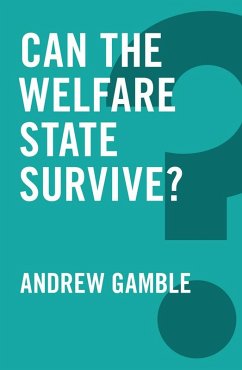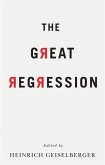After the most serious economic crash since the 1930s and the slowest recovery on record, austerity rules. Spending on the welfare state did not cause the crisis, but deep cuts in welfare budgets has become the default policy response. The welfare state is seen as a burden on wealth creation which can no longer be afforded in an ever more competitive global economy. There are calls for it to be dismantled altogether.
In this incisive book, leading political economist Andrew Gamble explains why western societies still need generous inclusive welfare states for all their citizens, and are rich enough to provide them. Welfare states can survive, he argues, but only if there is the political will to reform them and to fund them.
Hinweis: Dieser Artikel kann nur an eine deutsche Lieferadresse ausgeliefert werden.
In this incisive book, leading political economist Andrew Gamble explains why western societies still need generous inclusive welfare states for all their citizens, and are rich enough to provide them. Welfare states can survive, he argues, but only if there is the political will to reform them and to fund them.
Hinweis: Dieser Artikel kann nur an eine deutsche Lieferadresse ausgeliefert werden.








